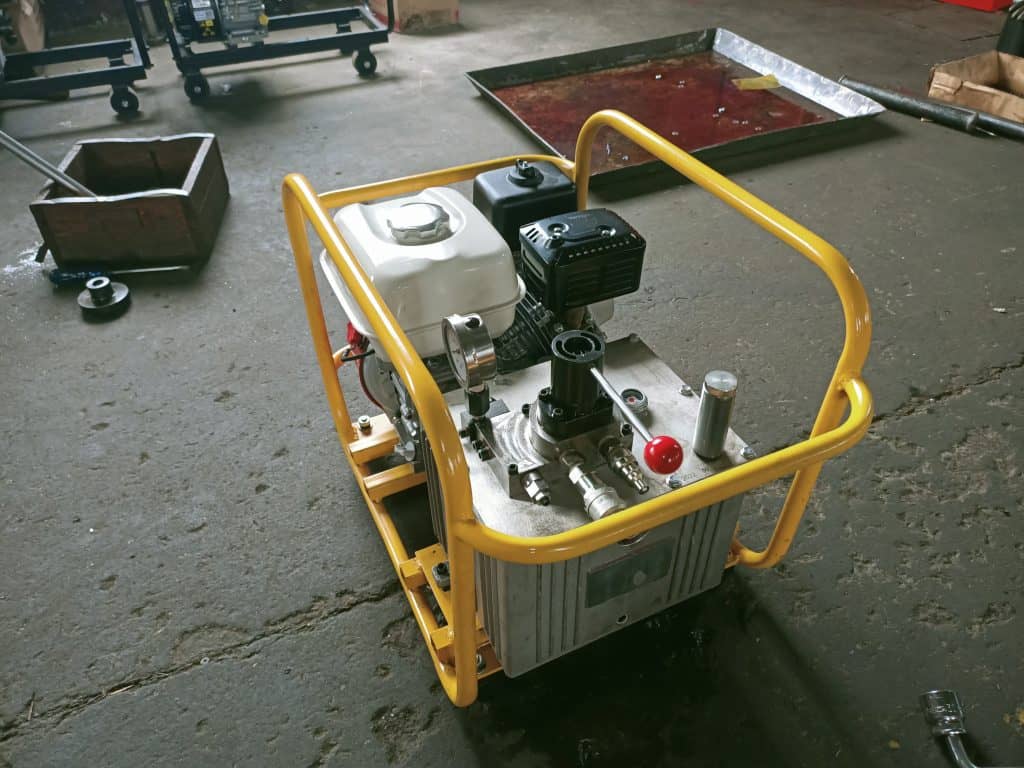
Image Source: Google
Hydraulic systems have long been used in a wide range of industrial applications due to their ability to generate a high amount of power with relatively small actuators.
Incorporating electrical components into hydraulic systems, such as electrical hydraulic pumps, can significantly enhance the efficiency and control of these systems. If you are looking for an electrical hydraulic pump that can help maximize efficiency in various industrial settings, you may check this site.
The Advantages of Electrical Hydraulic Pumps
Efficiency
- Electrical hydraulic pumps are more energy-efficient compared to traditional hydraulic pumps as they only consume energy when needed.
- They offer variable speed control, allowing for precise adjustments to the flow rate and pressure, resulting in reduced energy consumption.
- Electric motors have a higher efficiency rating than traditional hydraulic pumps, leading to overall energy savings.
Precision and Control
- Electrical hydraulic pumps provide precise control over the speed and position of hydraulic actuators, leading to improved accuracy in industrial processes.
- They offer the ability to program specific pressure and flow profiles, ensuring consistent performance and reducing the risk of errors.
- Operators can easily monitor and adjust the pump parameters using intuitive interfaces, enhancing overall system control.
Applications of Electrical Hydraulic Pumps
Manufacturing
- Electrical hydraulic pumps are widely used in manufacturing processes that require precise and repeatable movements, such as CNC machining, metal forming, and assembly line operations.
- They can improve productivity by reducing cycle times and minimizing downtime for maintenance.
- Manufacturers can benefit from the flexibility of electrical hydraulic pumps to adapt to different production requirements quickly.
Mobile Equipment
- Electrical hydraulic pumps are becoming increasingly popular in mobile equipment applications, such as construction machinery, agricultural vehicles, and material handling equipment.
- They offer better fuel efficiency and emissions control compared to traditional hydraulic systems, making them a preferred choice for environmentally conscious industries.
- Operators of mobile equipment can enjoy smoother and more precise control over the hydraulic functions, leading to improved safety and productivity.
Factors to Consider When Selecting Electrical Hydraulic Pumps
Performance Requirements
- Determine the desired flow rate, pressure range, and speed control capabilities needed for your specific application.
- Consider the duty cycle and load variations to ensure the pump can meet the performance demands reliably.
Installation and Maintenance
- Choose a pump that is easy to install and integrate into your existing hydraulic system to minimize downtime.
- Consider the maintenance requirements of the pump, such as filter changes and oil checks, to ensure optimal performance over time.
Cost and Energy Efficiency
- Compare the initial cost of the pump with its long-term energy savings potential to determine the overall cost-effectiveness.
- Look for energy-efficient features, such as variable speed control and power regeneration, to maximize energy efficiency and reduce operating costs.